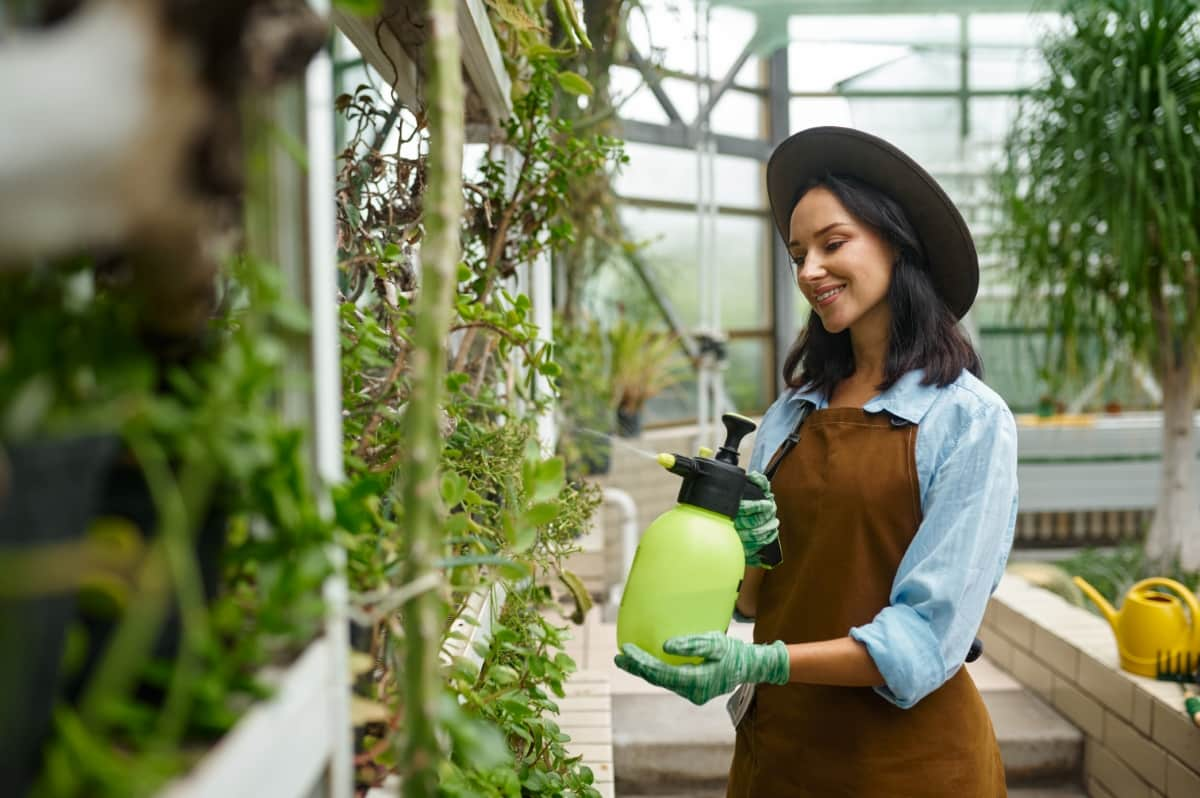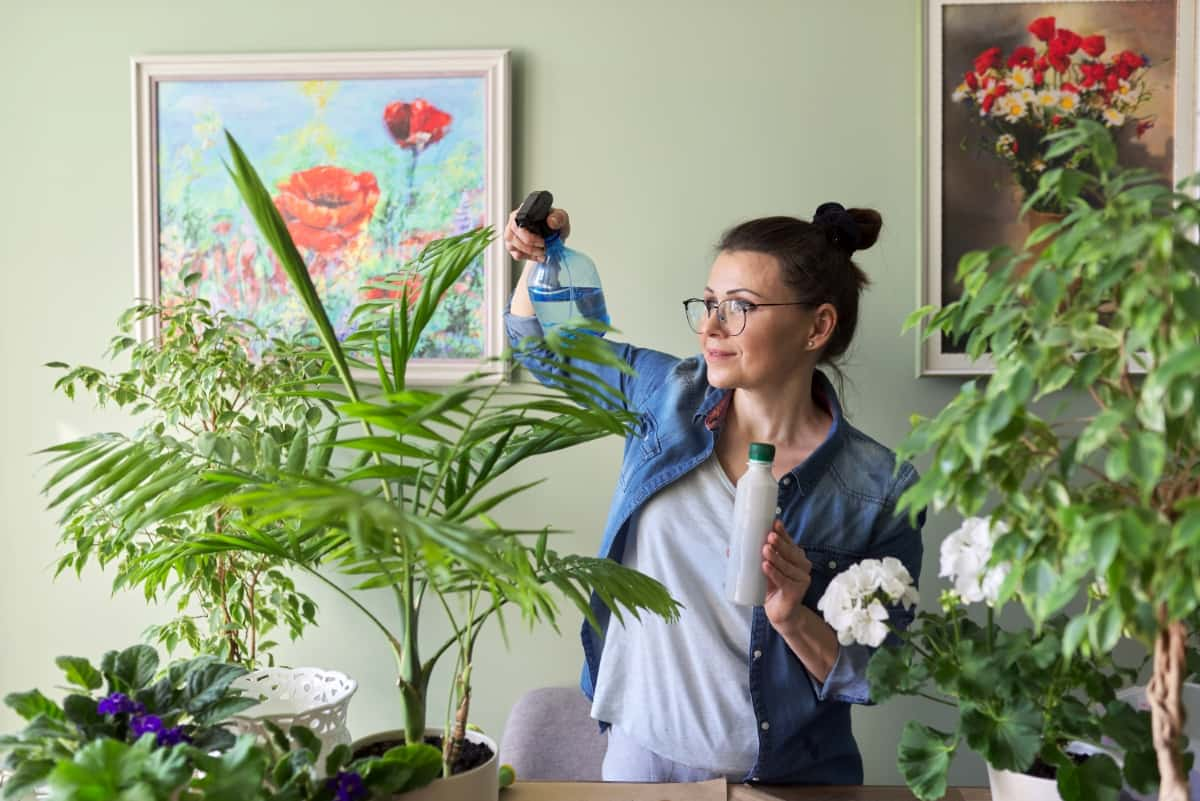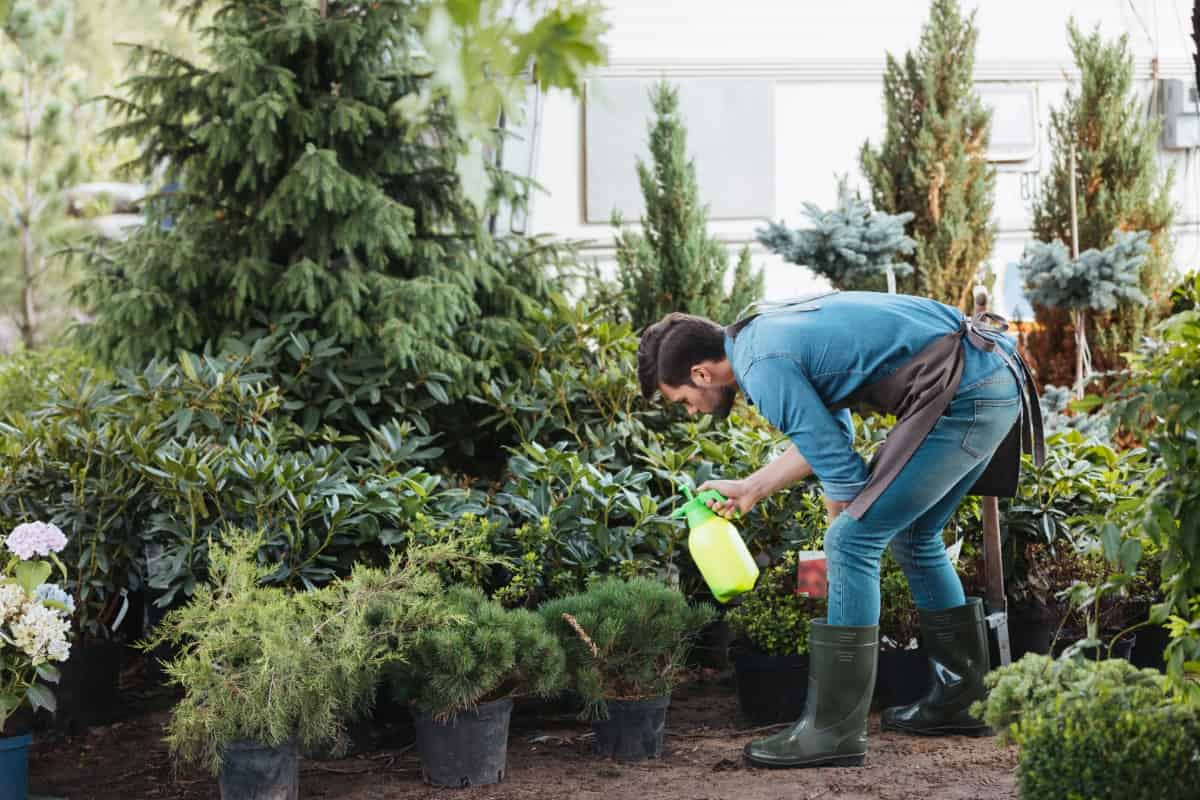Hydrogen peroxide is more than just a common household cleaning agent. It can also be a valuable tool for your garden plants. With its powerful oxidizing properties, hydrogen peroxide offers numerous benefits for plant health, disease control, and growth. This blog will explore how hydrogen peroxide can enhance your garden’s success.

From promoting root health to aiding in seed germination, from foliar spraying to pest control, we’ll delve into the versatile applications of hydrogen peroxide in gardening. Get ready to discover the incredible benefits this simple solution can bring to your garden plants.
Benefits of Hydrogen Peroxide for Garden Plants
Why Use Hydrogen Peroxide for Garden Plants?
- Boosts plant health: Hydrogen peroxide enhances plant growth, strengthens root systems, and improves nutrient absorption.
- Disease control: It helps prevent and treat various plant diseases, including fungal infections and root rot.
- Seed germination aid: Hydrogen peroxide promotes successful seed germination by disinfecting seeds and providing necessary oxygen.
- Pest control can effectively deter and eliminate garden pests like aphids and mites.
- Soil oxygenation: Hydrogen peroxide oxygenates the soil, benefiting plant roots and vitality.
How Much Hydrogen Peroxide Do I Need to Use for Garden Plants?
- For misting indoor plants and improving aeration while deterring fungus on leaves and soil, mix one teaspoon of 3% hydrogen peroxide with 1 cup of water. The ratio here is one part hydrogen peroxide to 48 parts water.
- Use the same misting solution above to combat pests like aphids and spider mites on plant leaves.
- For sanitizing the soil and eliminating fungal pathogens around the plant roots, create a solution of 1 part 3% hydrogen peroxide to 8 parts water. For example, you can use 1 pint of hydrogen peroxide per gallon of water. Pour this solution into the plant pot around the roots and allow it to drain overnight.
- To address powdery mildew and leaf spot diseases, prepare a powerful homemade anti-fungal solution by mixing 1 1/2 tablespoons of baking soda, 1 1/2 tablespoons of 3% hydrogen peroxide, and two and a half gallons (approximately 9.46 liters) of water. Spray this solution directly on the plant leaves for effective control.
Hydrogen Peroxide Used for Seed Treatment
The success of your seedlings and prevent them from being attacked by seed-borne pathogens, it is important to sanitize your seeds before sowing.
- Use a 3% hydrogen peroxide concentration and heat it to 140°F (60°C).
- Soak your seeds in the heated hydrogen peroxide solution for five minutes.
- For sprout production, whether for personal or commercial use, disinfect sprouting trays thoroughly using hydrogen peroxide. This helps prevent contamination from foodborne illnesses such as E. coli, salmonella, and listeria.
- After the five-minute soak, rinse the seeds thoroughly by running water over them for about a minute to remove any residual chemicals.
Hydrogen Peroxide for Plant Root Rot
Root rot is a common problem caused by waterlogged soil and a lack of oxygen reaching the roots. Hydrogen peroxide can help by aerating waterlogged roots, killing pathogens, and delivering oxygen. Create a solution of 1 part 3% hydrogen peroxide and two parts water to drench the soil and eliminate bacteria. Water plants with a quart of water and 3% hydrogen peroxide to provide oxygen. Avoid watering until the top two inches of soil are dry. Using hydrogen peroxide promotes healthier plant growth by combating root rot.
Hydrogen Peroxide Foliar Spray
A foliar spray of hydrogen peroxide can benefit plants in several ways. It helps combat fungal and bacterial infections on leaves, improves nutrient absorption, and enhances plant health. The spray’s oxidative properties can also break down harmful toxins and reduce plant stress. To prepare a foliar spray, dilute 3% hydrogen peroxide with water in a 1-part hydrogen peroxide ratio to 10 parts water. Apply the solution to the plant’s foliage, ensuring thorough coverage. Use the spray during the cooler hours of the day to minimize any potential damage to the plant.
In case you missed it: Benefits of Neem Coated Urea in Agriculture

Using Hydrogen Peroxide as Plant Fertilizer
Using hydrogen peroxide as a plant fertilizer helps strengthen the root system and enhances nutrient absorption. When growing vegetables or other plants, the additional oxygen molecule in peroxide enables plants to take in more beneficial minerals and nutrients from the soil. To fertilize your plants, mix one teaspoon of 3% hydrogen peroxide with 1 gallon of warm water. Stir well, then pour the solution into the soil around your plants, whether in pots or on the ground. This simple mixture can greatly boost plant growth.
Hydrogen Peroxide for Plant Health and Plant Disease Control
Bacterial rot can quickly cause plants to deteriorate, starting with mold or mildew. Hydrogen peroxide is effective in sanitizing and preventing the spread of bacterial infections. Cuts and bruises on plant tissues are common causes of bacterial infections, which can also be transmitted through insects.
To safeguard your plants against bacterial rot, spray them with hydrogen peroxide and water. This helps prevent bacterial infections by applying the solution to fresh cuts on tree branches or after pruning. When preparing bulbs and tubers for storage, dipping them in hydrogen peroxide can prevent bacterial rot during storage, preserving their health and quality.
Hydrogen Peroxide for Seed Germination
Hydrogen peroxide is a valuable tool for seed germination, offering several benefits to ensure successful plant growth. Soaking seeds in a 3% hydrogen peroxide solution for 30 minutes softens the seed coat and eliminates harmful pathogens. By rinsing the seeds and planting them, you provide an optimal environment for germination.
Hydrogen peroxide releases oxygen when it breaks down, aiding seed sprouting and supporting new growth. Mixing hydrogen peroxide into the soil during sowing and using a weak hydrogen peroxide solution for watering the garden bed in the first week further safeguards against pathogens. Incorporating hydrogen peroxide enhances germination speed, success, and overall plant health.
Hydrogen Peroxide as a Soil Oxygenator
Soil aeration plays a vital role in plant growth as it facilitates the movement of nutrients from the soil to the roots. When the soil becomes compacted, oxygen availability decreases, hindering plant development. Hydrogen peroxide can be used in the garden to address this issue. Introducing hydrogen peroxide to the soil releases oxygen, promoting soil aeration and improving nutrient uptake for healthier plant growth.
Hydrogen Peroxide for Hydroponic Systems
Promote the growth of your hydroponic plants. It’s needed to maintain clean and oxygen-rich water in the glass pots. Without adequate oxygen, these plants can become vulnerable to root rot and bacterial growth, hampering their overall health and development. One effective way to ensure their well-being is by incorporating hydrogen peroxide into your hydroponic system. Add three tablespoons of hydrogen peroxide to one liter of hydroponic water, and watch as your plants thrive and remain healthy in their oxygenated environment.
Hydrogen Peroxide for Plant Pest Control
- Dilute 3% hydrogen peroxide with water in a ratio of 1:1 to create a solution.
- Spray the solution directly on the affected plant leaves to deter and eliminate pests such as aphids, spider mites, and other sapsuckers.
- Hydrogen peroxide disrupts the cellular structure of pests and inhibits their ability to reproduce.
- Repeat the application every few days until the pest infestation is under control.
In case you missed it: Benefits of the Pheromone Trap for Farmers in Agriculture

Conclusion
Hydrogen peroxide offers numerous benefits for garden plants. From promoting root health and disease control to aiding in seed germination and pest control, it is a versatile and effective solution for enhancing plant health and ensuring a successful garden.
- Feed Your Flock for Less: Top 10 Tips to Save on Chicken Feed
- Ultimate Guide to Ossabaw Island Hog: Breeding, Raising, Diet, and Care
- Hatching Answers: The Top 10 Reasons Your Chickens Aren’t Laying Eggs
- Eggs and Economics: Breaking Down the Cost of Raising Backyard Chickens
- Defend Your Greens: Proven Methods to Keep Iguanas Out of Your Garden
- Ultimate Guide to Cinnamon Queen Chicken: A Comprehensive Guide for Beginners
- Ultimate Guide to California Tan Chicken: Breeding, Raising, Diet, Egg-Production and Care
- Ultimate Guide to Marsh Daisy Chicken: Breeding, Raising, Diet, and Care
- 10 Types of Chicken Farming Businesses You Can Start for Profits